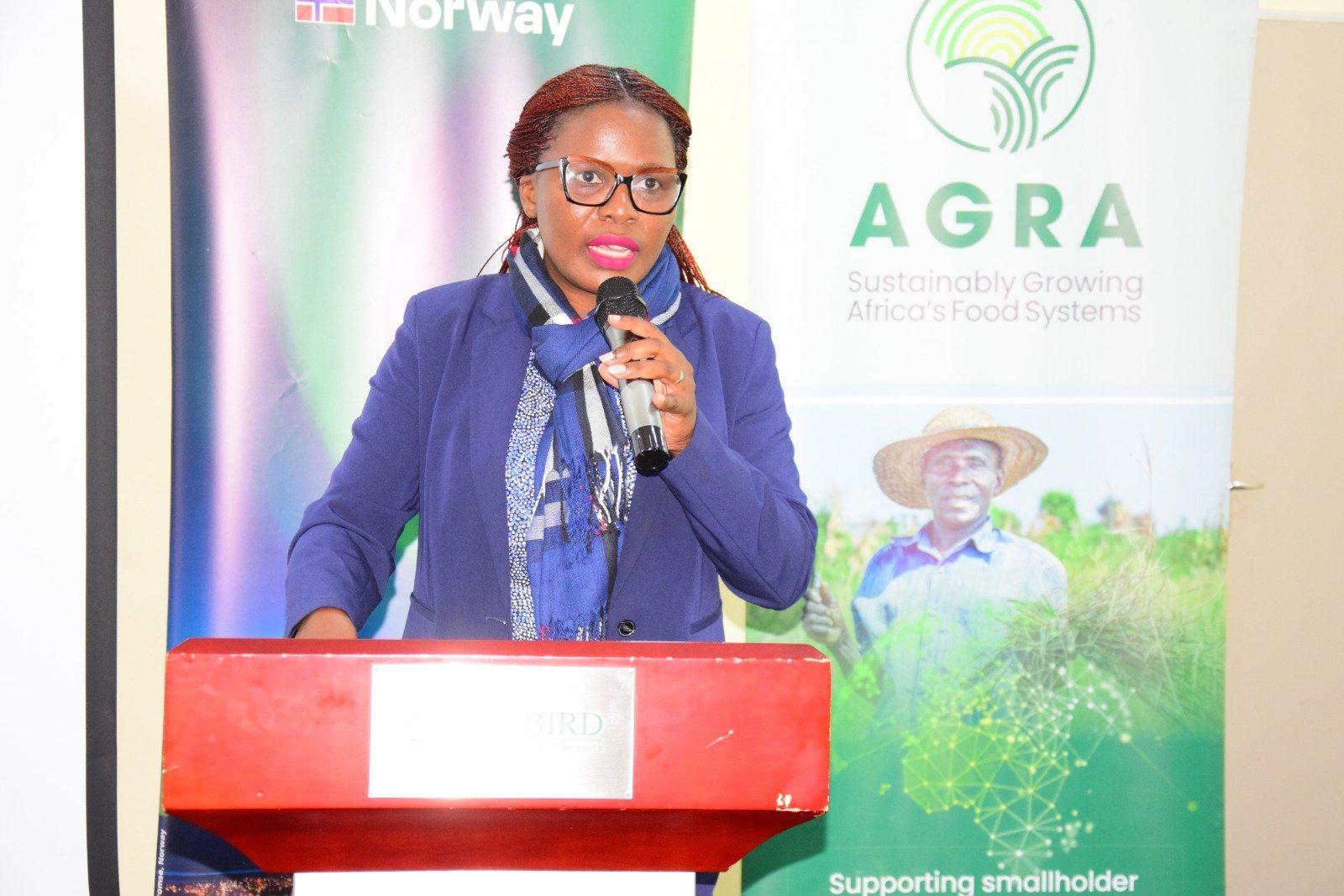Africa-Press – Malawi. The Government of Malawi, in partnership with the Alliance for a Green Revolution in Africa (AGRA) and the Royal Norwegian Embassy, officially launched the Malawi Agricultural Cluster Initiative (MACI) on Tuesday, hailing it as a game-changing platform set to revolutionize the country’s agricultural sector.
MACI is funded by the Royal Norwegian Embassy and implemented by AGRA in partnership with the Government of Malawi. It aims to enhance productivity, coordination, and commercialization across selected agricultural value chains using a cluster-based model.
Speaking during the high-profile National Inception Meeting held at Sunbird Capital Hotel in Lilongwe, Pearson Soko, Director of Extension Services in the Ministry of Agriculture and Food Security, described MACI as a bold and timely move to address the long-standing challenges that have stifled Malawi’s agricultural potential.
“MACI represents a shift—not just in how we design programs, but in how we work together,” Soko said. “It is a bold step toward systems change, toward making Malawi’s agriculture more resilient, more productive, and more inclusive.”
Malawi’s economy is heavily reliant on agriculture, contributing nearly 24% to the GDP and employing over 70% of the population, most of whom are smallholder farmers. However, persistent challenges—such as low productivity, fragmented value chains, weak market linkages, and limited private sector investment—have continued to hinder growth.
According to Soko, soybean and groundnut yields remain well below potential, averaging only 0.8 and 0.7 metric tons per hectare, respectively, in 2023. Over 65% of smallholders sell at the farm gate to informal markets, missing out on value-added opportunities. As a result, processors operate below capacity due to inconsistent supply chains.
“This is not just a missed economic opportunity,” Soko warned. “It’s also a threat to our national food and nutrition security.”
The MACI initiative introduces a cluster-based approach to overcome these barriers by aligning stakeholders—from government and private sector actors to academia and farmer organizations—around structured commodity compacts.
These clusters will first target soybeans and groundnuts in Lilongwe and Kasungu districts. Through joint planning, shared accountability, and data-driven decision-making, MACI aims to increase smallholder incomes, enhance market systems, and promote inclusive agricultural transformation.
“This is more than a project,” said Dr. Eluphy Nyirenda, AGRA Country Director. “MACI is a catalytic platform for coordinated action and systems change. It builds on existing efforts while providing the structure needed for scale and sustainability.”
MACI is designed to complement existing programs such as Malawi’s Mega Farm Strategy, the AGCOM project, and other development partner initiatives including Irish Aid’s Growth Pole Project, the UNDP UCHI program, and the IFAD TRADE programme.
Representing the Royal Norwegian Embassy, the Head of Cooperation Siri Frette Allsted emphasized that MACI stands apart from traditional aid projects by focusing on collaboration, systemic transformation, and lasting value creation.
“What sets MACI apart is its commitment to inclusivity, local ownership, and market orientation,” she said. “We are not here to reinvent the wheel, but to work smarter—together.”
The Royal Norwegian Embassy pledged continued support for the initiative, highlighting its emphasis on climate-smart practices, inclusion of youth and women, and the use of evidence to guide policy and investment.
The Ministry of Agriculture has committed to integrating MACI into national frameworks, including the Malawi 2063 Vision and the National Agriculture Policy. It will provide policy guidance and extension services through district-level coordination bodies such as the District Agriculture Extension Coordinating Committees (DAECCs).
Soko underscored the importance of embedding MACI within government systems to ensure sustainability beyond the lifespan of the project.
“We must view MACI not as a standalone project but as a national platform for agricultural transformation,” he said. “Its success depends on how well we align our systems, support our farmers, and co-create lasting solutions.”
With its official launch, MACI is now poised to serve as a model for future agricultural initiatives. As discussions and planning sessions unfolded at the inception meeting, participants echoed a shared sentiment—that true transformation in Malawi’s agriculture will only be possible through collective effort.
“Let MACI not just be a program,” said Nyirenda, “but a new way of working together.”
For More News And Analysis About Malawi Follow Africa-Press






